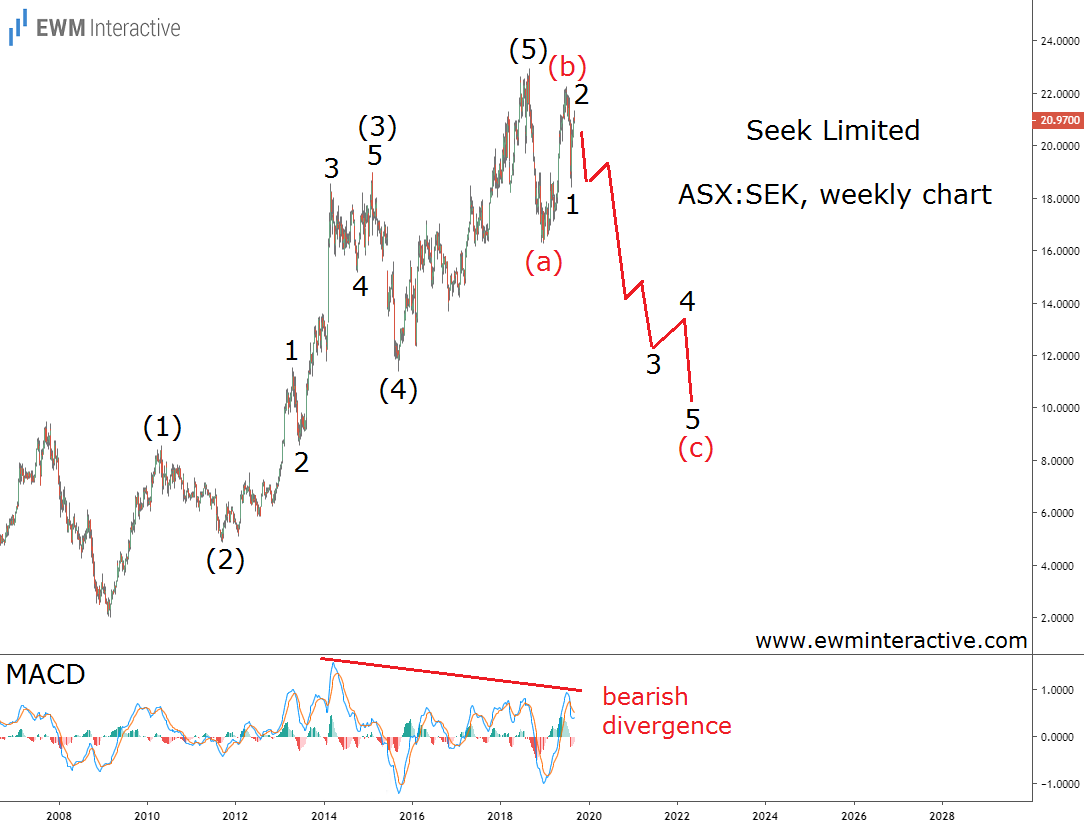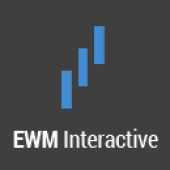Investing.com’s stocks of the week
Seek Ltd (ASX:SEK) operates online platforms where jobseekers can find employment opportunities. The company is based in Australia, but also conducts business in China, India, New Zealand and Brazil, among others. Seek stock is traded on the Australian Stock Exchange under the symbol SEK.
Seek stock lost over 78% during the 2007-2009 global crash, but has been doing very well the following ten years. Obviously, recessions are bad and expansions are good for Seek’s business. And while Australia has officially not been in a recession for 28 years, Seek’s exposure to other countries makes it vulnerable to the economic cycle.
It is hardly a coincidence that just when the world economy appears to be slowing, the chart below reveals that Seek is vulnerable to the Elliott Wave cycle, as well.

The weekly chart of Seek stock shows its progress since the bottom in March 2009. It took the shape of a textbook five-wave impulse, labeled (1)-(2)-(3)-(4)-(5). Wave (3) is the extended one and its five sub-waves are also visible. This pattern means that we can expect more strength from SEK in the long run.
On the other hand, the Elliott Wave theory states that a three-wave correction follows every impulse before the larger trend can resume. Usually, the corrective phase of the cycle drags the price down to the support of the fourth wave.
For Seek stock, currently at ~A$21, this means a decline to roughly A$11 can soon be expected. In addition, the MACD indicator shows a strong bearish divergence between waves (3) and (5). If this count is correct, Seek Limited can lose almost 50% of its market value going forward. Given that it is trading at a P/E ratio of 40, a decline to A$11 is not that far-fetched.
